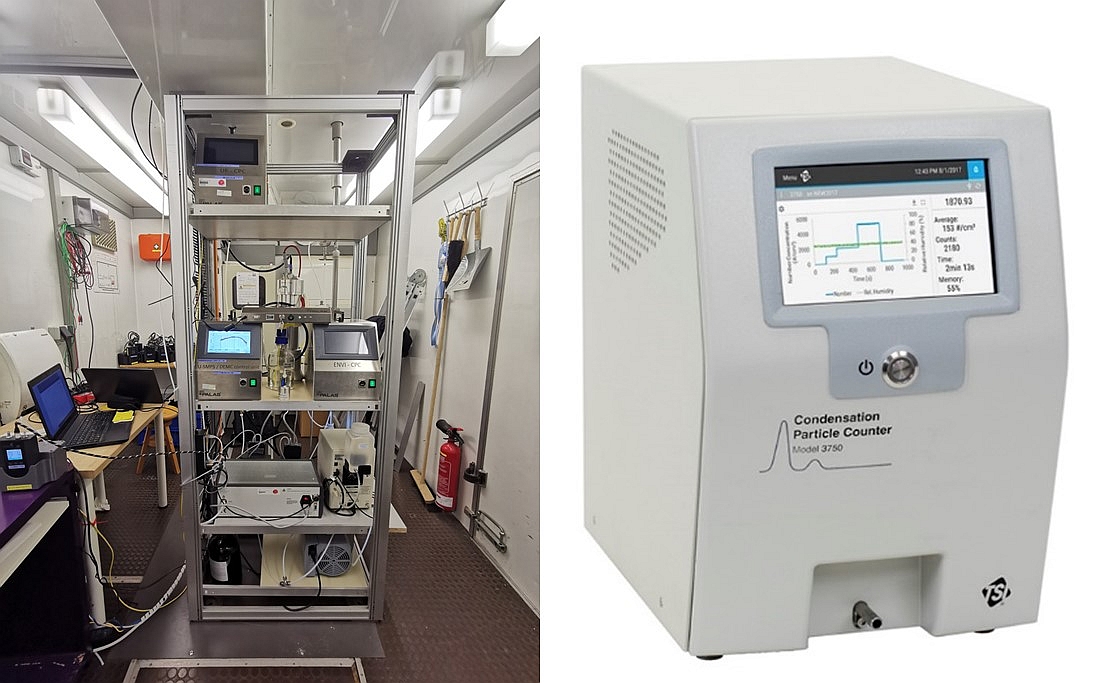In cooperation with the State Office for the Environment Baden-Württemberg (LUBW), Müller-BBM Industry Solutions GmbH has carried out comparative measurements of two condensation particle counters (CPC) for the detection of ultrafine particles at an urban background measuring point over a period of three months. The aim of these measurements was to derive process parameters and gain experience in the interpretation of measurement results.
Thanks to the results of this cooperation, Müller-BBM has now been able to obtain accreditation for the measurement of UFPs using a condensation particle counter in accordance with DIN EN 16976. Substantial investments in new measurement technology and staff training reinforce the strategic corporate decision.
The new EU directive and the use of innovative measurement technology by Müller-BBM mark an important step towards an improved air quality and a better protection of human health. By accurately detecting and analysing ultrafine particles, we can better understand and assess the effects in relation to air pollution control.
UFP measurement - Your contacts
Background:
Ultrafine particles (UFP) are particles with a diameter of less than 100 nanometres, which make up the majority of the particle number concentration in atmospheric aerosol. Their small size makes them particularly dangerous to human health, as they can penetrate deep into the lungs and enter the bloodstream. The number of UFPs is therefore an important indicator of air quality and the potential health risks from anthropogenic, i.e. man-made, UFPs.
In December 2024, the European Union adopted a new directive that explicitly mentions ultrafine particles in outdoor air for the first time. This directive requires the recording of UFPs at specific measuring points in the EU in order to better understand air quality and the associated health risks.
Ultrafine particles can be measured or counted using condensation particle counters (CPC). A corresponding standard, DIN EN 16976, has been in place since September 2024. It describes the requirements for suitable measuring instruments, measuring procedures, data processing and important quality assurance measures.
